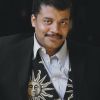8 Best-Selling Renaissance Philosophy Books Millions Love
Discover Renaissance Philosophy Books endorsed by Neil Degrasse Tyson, Fred Wilson, and Donald Trump—experts whose picks reflect proven value and widespread acclaim.



There's something special about books that both critics and crowds love—especially in Renaissance Philosophy, a field that continues to shape how we understand human nature, ethics, and governance. These eight best-selling books have stood the test of time, offering readers frameworks and ideas that resonate deeply centuries after their creation. Their continuing popularity speaks to the lasting impact of Renaissance thought on modern intellectual life.
Experts like Neil Degrasse Tyson, an astrophysicist who appreciates the pragmatic insights in Machiavelli's The Prince, and Fred Wilson, a venture capitalist drawn to the strategic depth in Renaissance humanism, have helped bring these books to wider audiences. Even figures like Donald Trump have recognized the political acumen embedded in these works, underscoring their relevance across diverse fields.
While these popular books provide proven frameworks, readers seeking content tailored to their specific Renaissance Philosophy needs might consider creating a personalized Renaissance Philosophy book that combines these validated approaches. This way, you get the best of established wisdom aligned with your unique interests and goals.
Recommended by Neil Degrasse Tyson
Astrophysicist and science communicator
by Niccolò Machiavelli··You?
by Niccolò Machiavelli··You?
Niccolò Machiavelli’s experience as a diplomat during turbulent political times led him to write this guide for rulers focused on power dynamics and survival. You’ll gain insights into how pragmatic, sometimes ruthless decisions serve a ruler’s goals, with chapters that dissect virtues and vices in leadership. This book suits those interested in political strategy and realpolitik, offering a candid look at governance beyond idealism. It’s especially relevant if you want to understand the historical foundations of political maneuvering and the balance between ethics and effectiveness.
by Ernst; Kristeller Cassirer Paul Oskar & Randall John Herman Jr. (Editors)·You?
by Ernst; Kristeller Cassirer Paul Oskar & Randall John Herman Jr. (Editors)·You?
Unlike many texts that merely skim Renaissance philosophical ideas, this collection edited by Ernst, Kristeller, and Herman Jr. brings together pivotal writings from key thinkers like Petrarca, Ficino, and Pico. The editors' deep engagement with Renaissance humanism surfaces in selections that reveal how these philosophers grappled with the nature of man, ethics, and human potential. You’ll find chapters that clarify how Renaissance thought diverged from medieval scholasticism, offering insights into individualism and the revival of classical learning. This book suits those eager to explore foundational texts shaping modern humanistic philosophy, providing a direct window into the intellectual transformations of the era.
by TailoredRead AI·
This tailored book explores Renaissance political philosophy through a lens crafted to your unique interests and challenges. It examines the power dynamics and strategic insights from Renaissance thinkers, revealing how their ideas continue to resonate and inform leadership today. By focusing on your background and goals, this personalized guide unpacks complex concepts in a way that aligns with your specific learning journey. You’ll delve into key themes like governance, leadership, and ethical considerations, gaining a nuanced understanding of how Renaissance strategies can illuminate modern political and social challenges. This approach ensures your exploration is both deeply relevant and intellectually engaging.
by Paul Oskar Kristeller·You?
by Paul Oskar Kristeller·You?
Paul Oskar Kristeller's decades as a Renaissance scholar led him to assemble these essays, which explore the interplay between humanist philosophy and artistic expression during the Renaissance. You’ll gain insights into humanist learning, moral thought, and the diffusion of Renaissance ideas, alongside discussions on Platonism, music, and the arts' evolving system. The new preface and afterword provide fresh context, helping you understand how Renaissance humanism shaped cultural and intellectual history. This collection suits anyone delving into Renaissance thought or art history, offering a nuanced perspective rather than a broad overview.
by Paul Kristeller·You?
by Paul Kristeller·You?
Paul Kristeller's experience as a scholar of Renaissance thought shines through in this detailed exploration of eight key Italian philosophers. You gain insight into how figures like Petrarch, Ficino, and Bruno shaped the intellectual currents of their time, influencing not just philosophy but art, science, and religion. The book carefully connects their ideas, showing how each contributed to the broader Renaissance movement, making it clear why these thinkers remain relevant today. If you're interested in the roots of Renaissance philosophy and its cultural impact, this work offers a structured and thoughtful survey that deepens your understanding without overwhelming you.
by Edward P. Mahoney·You?
by Edward P. Mahoney·You?
Edward P. Mahoney draws on decades of scholarly engagement with Renaissance thought to assemble a collection of essays honoring Paul Oskar Kristeller’s legacy. This volume delves into the intersections of philosophy and humanism during the Renaissance, exploring how thinkers of the era grappled with questions of human nature, ethics, and intellectual inquiry. You’ll find detailed analyses of key figures and texts that shaped Renaissance philosophy, revealing both its historical context and enduring influence. This book suits those deeply interested in the roots of modern humanist thought and the philosophical currents that defined the Renaissance period.
by TailoredRead AI·
This tailored book explores Renaissance humanism by weaving together classic insights and your unique interests to illuminate this transformative intellectual movement. It examines the cultural revival of classical learning, ethical human values, and the impact of Renaissance thinkers on modern perspectives. By focusing on your background and goals, it reveals how humanism shaped art, philosophy, and society, while offering pathways to apply these ideas in contemporary contexts. The personalized content matches your curiosity and skill level, making the exploration deeply relevant and engaging. Through this tailored journey, you gain a rich understanding that bridges historical thought and today's world, enhancing both knowledge and critical reflection.
by Jill Kraye··You?
by Jill Kraye··You?
After analyzing a broad range of Renaissance texts and cultural shifts, Jill Kraye developed this volume to explore the evolution of humanism from its roots in ancient text recovery to its influence on key Renaissance figures like More, Sidney, and Shakespeare. You gain insight into how humanism shaped intellectual life across literature, philosophy, and art, with essays detailing its origins in Italy and its wider European impact. For anyone delving into Renaissance culture or philosophy, this book offers a structured yet rich introduction to the movement’s complexity and enduring legacy. However, if you're looking for a narrative history, the essay format may feel fragmented rather than seamless.
by Daniel A. Di Liscia, Eckhard Kessler·You?
by Daniel A. Di Liscia, Eckhard Kessler·You?
The volume, born from a 1992 seminar at the Herzog August Bibliothek, offers a deep dive into Renaissance natural philosophy through the lens of the Aristotle commentary tradition. Daniel A. Di Liscia and Eckhard Kessler guide you through complex concepts like the theory of regressus, revealing how Renaissance thinkers such as Galileo and Zabarella approached method within broader historical and systematic contexts. You’ll gain insights into the evolution of scientific methodology from ancient roots to early modern interpretations, including Lutheran and Calvinist influences. This book suits those fascinated by the intricate development of philosophical methods rather than casual readers seeking a straightforward overview.
by C. B. Schmitt, Quentin Skinner, Eckhard Kessler, Jill Kraye··You?
by C. B. Schmitt, Quentin Skinner, Eckhard Kessler, Jill Kraye··You?
Drawing from decades of scholarly expertise, C. B. Schmitt and his co-editors present a detailed survey of Renaissance philosophical thought spanning the mid-fourteenth to the early seventeenth century. The book moves beyond focusing on individual thinkers, instead organizing the material by branches of philosophy to reveal the internal development and historical context of each area. You’ll gain insights into how Renaissance philosophy laid foundational groundwork for modern thought, exploring themes in metaphysics, epistemology, ethics, and more. This volume suits anyone deeply interested in the evolution of philosophical ideas during this pivotal era, though its breadth and depth may challenge casual readers.
Popular Renaissance Philosophy, Personalized ✨
Get proven Renaissance Philosophy methods tailored to your unique interests and goals.
Validated by experts and thousands of Renaissance Philosophy enthusiasts
Conclusion
These eight books collectively reveal how Renaissance Philosophy offers proven frameworks across politics, humanism, and methodology, validated through widespread readership and expert endorsement. If you prefer proven methods grounded in political strategy, start with Machiavelli's The Prince. For a validated approach to humanist thought, pairing The Renaissance Philosophy of Man with Philosophy and Humanism provides complementary perspectives.
Alternatively, you can create a personalized Renaissance Philosophy book to combine proven methods with your unique needs, ensuring you focus on the areas most relevant to your intellectual journey.
These widely-adopted approaches have helped many readers succeed in grasping the complex, enduring ideas that define Renaissance Philosophy. They offer a solid foundation for anyone looking to engage deeply with this pivotal era of thought.
Frequently Asked Questions
I'm overwhelmed by choice – which book should I start with?
Start with The Prince by Machiavelli if you're interested in political philosophy and power dynamics. It’s concise and foundational, giving you direct insights into Renaissance political thought that many experts, including Neil Degrasse Tyson, value highly.
Are these books too advanced for someone new to Renaissance Philosophy?
Not at all. Books like The Cambridge Companion to Renaissance Humanism offer accessible essays that introduce key ideas. Pairing it with Eight Philosophers of the Italian Renaissance can help newcomers grasp essential thinkers without being overwhelmed.
What’s the best order to read these books?
Begin with The Prince to understand political strategy, then explore humanist philosophy through The Renaissance Philosophy of Man and Philosophy and Humanism. Finally, dive into comprehensive works like The Cambridge History of Renaissance Philosophy for broader context.
Do I really need to read all of these, or can I just pick one?
You can pick based on your interests. For political insight, The Prince suffices. For broader philosophical themes, start with The Renaissance Philosophy of Man. The collection offers varied angles, so choose what aligns best with your goals.
Just because a book is popular, does that mean it's actually good?
Popularity here reflects both expert endorsement and lasting influence. These selections have proven impact, blending scholarly rigor with accessibility, making them reliable guides rather than fleeting trends.
Can I get a Renaissance Philosophy book tailored to my specific interests and experience level?
Yes! While these expert-recommended books provide valued insights, a personalized Renaissance Philosophy book can tailor content to your unique goals and background. You can explore this option here.
📚 Love this book list?
Help fellow book lovers discover great books, share this curated list with others!
Related Articles You May Like
Explore more curated book recommendations







